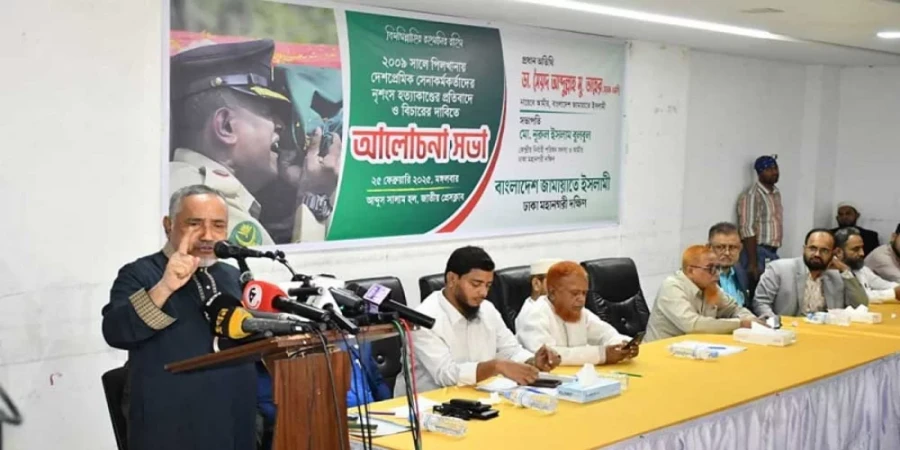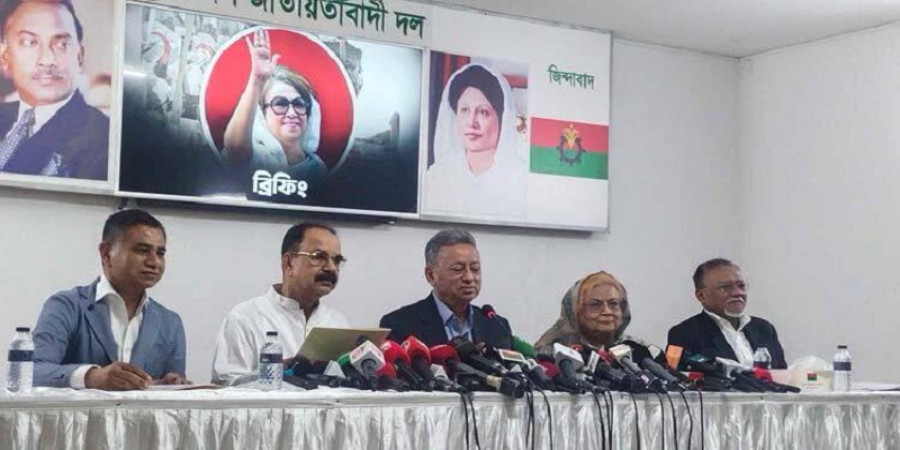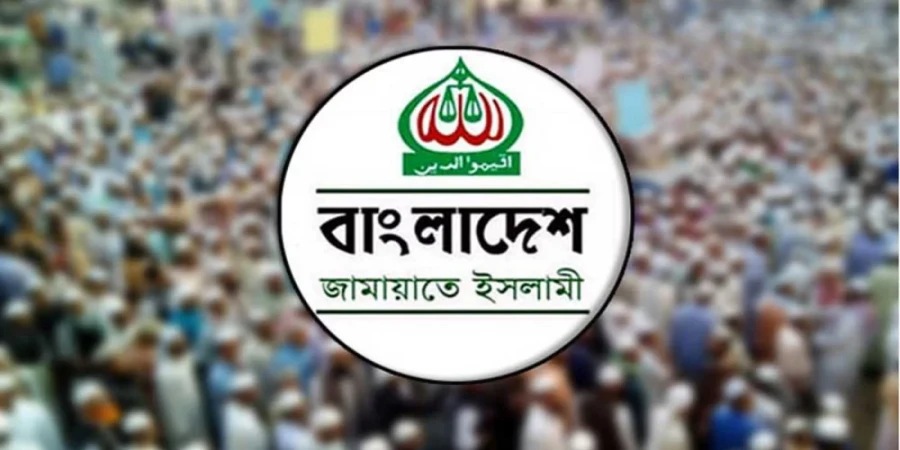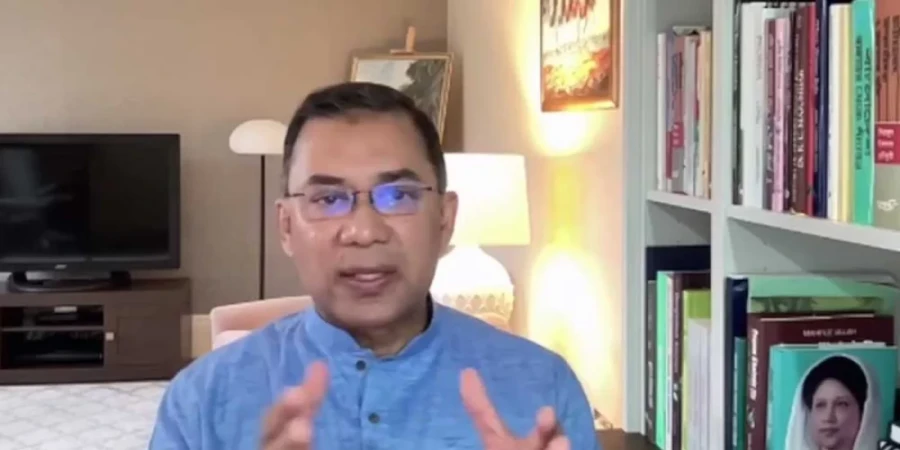
ছবি: Photo: Collected
Jamaat-e-Islami Nayeb-e-Ameer Dr. Syed Abdullah Mohammad Taher has claimed that the Pilkhana massacre was orchestrated to establish Indian dominance in independent Bangladesh. Speaking at a discussion organized by Jamaat-e-Islami Dhaka Metropolitan South on Tuesday, February 25, he alleged that India, with the support of the Awami League government, carried out the massacre by influencing BDR personnel who acted under Indian directives. Instead of holding them accountable, innocent BDR members were arrested, unfairly tried, sentenced, and dismissed from service.
Dr. Taher urged the government to ensure a fair and impartial investigation of the massacre through the interim government-formed commission. He emphasized that all those involved in the incident should be brought to justice. Calling for unity among political parties, including BNP, he proposed five commitments: no compromise on sovereignty, zero tolerance against corruption and terrorism, a pledge for fair elections, prioritizing national interests over party interests, and adhering to a unified national development policy. He further stated that if political leaders fail to uphold these principles, they should step away from politics.
Dr. Taher remarked that differing opinions and political parties are natural in a democracy, but unity on these fundamental issues could make Bangladesh a strong nation. Referring to Singapore’s rapid progress since 1967, he shared an anecdote where a Singaporean delegation attributed their country's success to having a sincere, capable, and patriotic leader. In contrast, he lamented that Bangladesh, after its independence in 1947 and again in 1971, had been led by corrupt politicians, which has prolonged the nation’s struggles. He asserted that the student-led movement on August 5, 2024, finally freed the country from fascism, making further conflicts unnecessary.
Speaking as a special guest, Jamaat-e-Islami Assistant Secretary General Maulana Rafiqul Islam Khan claimed that various conspiracies were designed to obscure the significance of the Pilkhana massacre. He described it as a dark chapter in Bangladesh’s history, with more military officers killed than during the Liberation War. He accused the government of deliberately targeting senior officers and criticized the military leadership for inaction during the crisis. Instead of responding, he claimed that the army chief and government officials were occupied with festivities, sending Jahangir Kabir Nanak and Mirza Azam to Pilkhana under suspicious circumstances, further suggesting state involvement in the killings.
Abdus Sabur Fakir, Naib-e-Ameer of Jamaat-e-Islami Dhaka Metropolitan South, questioned why Prime Minister Sheikh Hasina, who was expected to be at the Pilkhana Darbar Hall that day, was absent. He suggested that this absence was evidence of the premeditated nature of the massacre.
Dhaka Metropolitan South Ameer Nurul Islam Bulbul, who presided over the discussion, accused Sheikh Hasina of orchestrating the massacre shortly after coming to power through what he called a backdoor strategy. He alleged that she executed a five-fold plan: eliminating 57 skilled military officers, weakening the armed forces, crippling the military as revenge for her father’s assassination, dismantling the BDR, and replacing it with a new force subservient to the government.
The event, held at the Abdus Salam Hall of the National Press Club, was moderated by Dr. Shafiqul Islam Masud, Secretary of Dhaka Metropolitan South Jamaat. Other speakers included Jamaat-e-Islami’s Central Majlis-e-Shura members Dr. Abdul Mannan and Shamsur Rahman, former senior vice-president of Dhaka Bar Advocate S.M. Kamal Uddin, and President of Dhaka Journalists Union Shahidul Islam. Several other party leaders and activists, including members of the Dhaka Metropolitan South executive committee and leaders of the Bangladesh Labour Welfare Federation, also attended the gathering.
repoter






